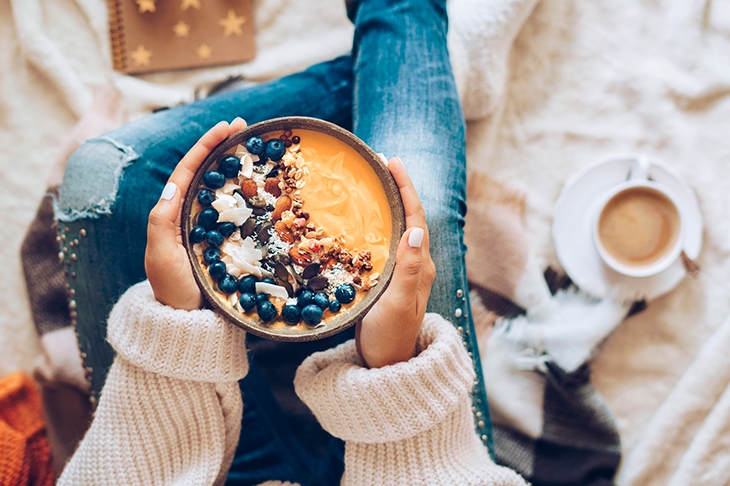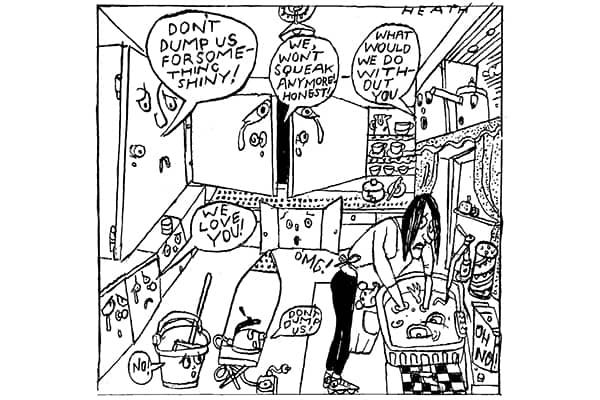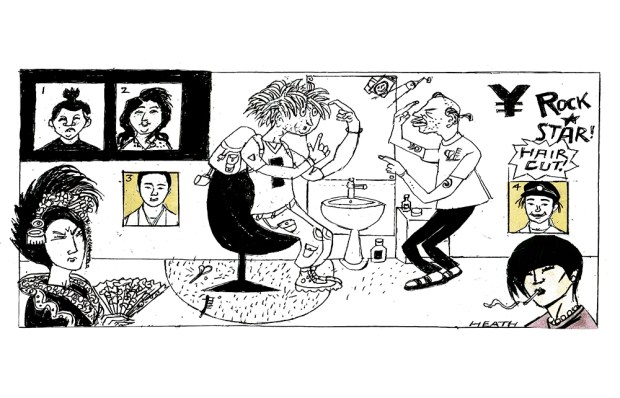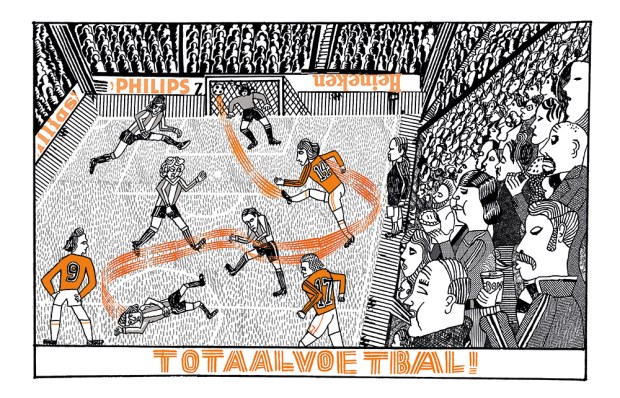Baby, it’s cold outside. It’s dark. It’s January. It’s Lockdown III. There’s only one thing for it: stay home, snuggle up, save lives. Cocoon yourself in cashmere, treat yourself to silk pyjamas, invest in a lambswool throw. Lay the fire, warm the cocoa, watch Love Actually for the 30th time. Practise self-care. Be sure to put you first.
You’ve heard of safe spaces and The Coddling of the American Mind. Well, this is the safe space as interiors trend, coddling as lifestyle choice. Call it the blanket cult. If the message of wellness was ‘My body is a temple and I shall make it strong with avocado, green juice and yoga’, then the message of self-care is ‘My body is a china doll, and must be wrapped in cotton wool and sheepskin slippers’. I don’t blame embattled retailers for wanting to capitalise on the cosy pound, but I do mind the idea that self-medicating with hygge and fingerless mittens is any sort of substitute for being allowed to get up, get out and get on with your life.
We’ve heard a lot in the past year about ‘gaslighting’, a form of manipulation that takes its name from Patrick Hamilton’s 1938 play Gas Light in which a husband unsettles his wife’s mental balance by, among other tricks, tampering with the gas lamps. It is, however, another story of control that now comes to mind. In Charlotte Perkins Gilman’s sinister story ‘The Yellow Wall-paper’ (1892), a husband and brother — both physicians — connive to keep the narrator confined to her room. She must lie down, keep quiet, and is ‘absolutely forbidden’ to work until she is well. ‘I disagree with their ideas,’ says the patient. ‘Personally, I believe that congenial work, with excitement and change, would do me good. But what is one to do?’ You said it, sister.
Gilman had herself suffered such a ‘rest-cure’. At the end of the 19th century, apparently hysteric or neurasthenic women were treated with bed rest and pint after pint of full-fat milk. Swap the bed for a sofa and milk for caramel chai and you have something like the set-up on offer to women self-isolating in single rooms and small flats today. Don’t leave your digs, but do order Oreo cheesecake on Deliveroo.
Lockdown isn’t wholly to blame. Self-care was in the air already, but being endlessly confined to barracks has made its message seem more timely and necessary. When crawling the walls — yellow-papered or otherwise — many have understandably embraced essential oils, herbal teas and other swaddling whatnot. Batten the hatches and bring on the lavender pillows. In moments of despair, it’s (probably) better to reach for the bubble bath than the gin, but the next time I read an article telling me to light a candle and curl up with a box set I fear I’ll burn the house down.
I say this not as someone who is gung-ho and unfeeling. Precisely the opposite. My headstone will read: ‘Tomb of the Unknown Worrier.’ When I was a teenager, I was given a notebook with a cover quote attributed to Eleanor Roosevelt: ‘Do one thing every day that scares you.’ The virtue of being scared of dogs, heights, dirt, crowds, confined spaces, open spaces, your own shadow and, on a bad day, everything is that there is always a convenient terror nearby. Some of us are born brave; some achieve braveness by daily facing our fears.
I worry (there I go again) that for every month that passes without boarding a plane, train, bus or Tube, I become that bit more out of practice, that bit more apprehensive. I know I’m not alone. I further worry that the more that we are told we are vulnerable, that we’ve never had it so bad, the more we may come to believe in our own fragility. ‘Lockdown survivor: handle with care.’ If you’re an NHS doctor or nurse, if you’re a teacher or in the actual caring professions, if you have lost your job, your business, your livelihood, you may well feel stretched and stressed beyond endurance. But the rest of us aren’t stressed, we’re stifled. The malaise isn’t treatable with ‘luxe loungewear’ or new bedsocks, but with busyness, purpose and full diary days. I don’t want an iced pastel biscuit. I want my life back.
Got something to add? Join the discussion and comment below.
Get 10 issues for just $10
Subscribe to The Spectator Australia today for the next 10 magazine issues, plus full online access, for just $10.
You might disagree with half of it, but you’ll enjoy reading all of it. Try your first month for free, then just $2 a week for the remainder of your first year.















Comments
Don't miss out
Join the conversation with other Spectator Australia readers. Subscribe to leave a comment.
SUBSCRIBEAlready a subscriber? Log in